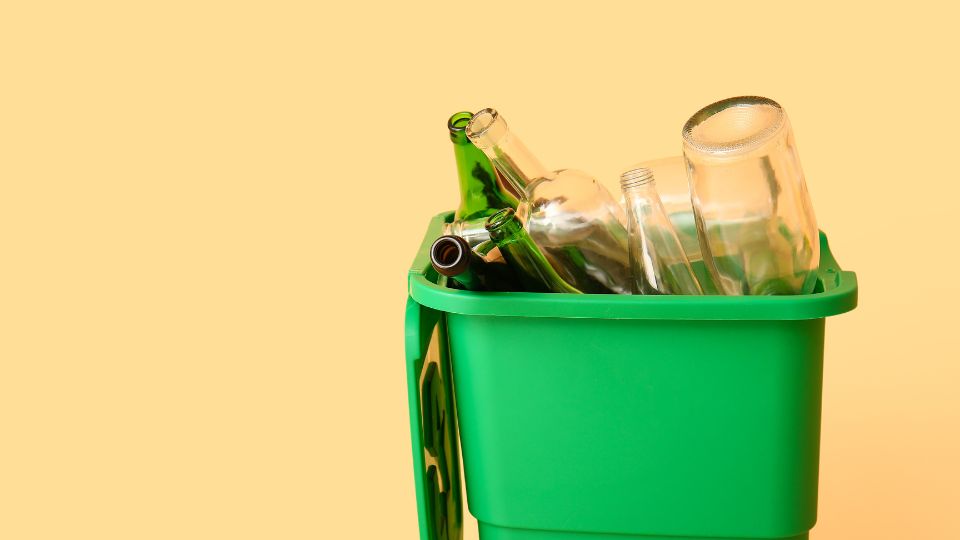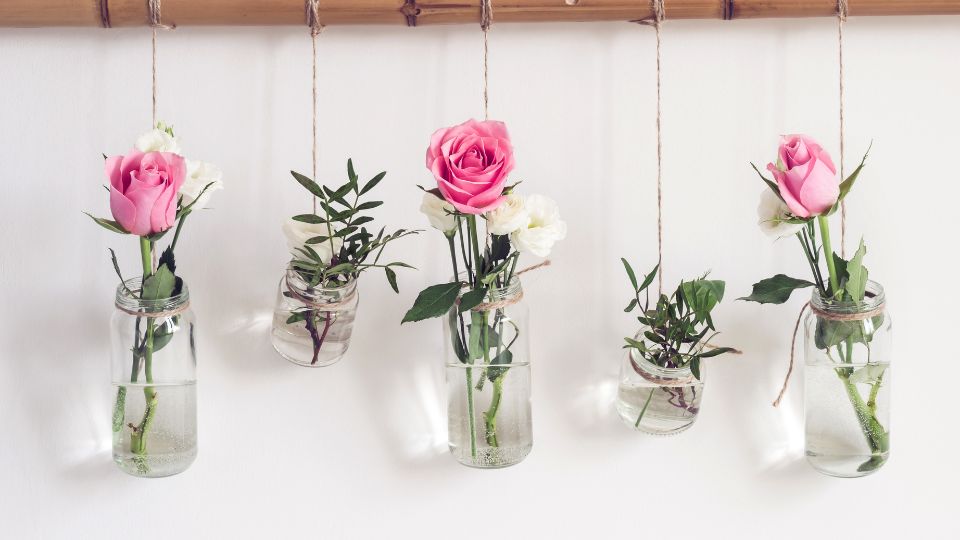
In an era where sustainability is a priority, both individuals and businesses are seeking innovative ways to reduce waste. One effective method is upcycling glass. By transforming old glass bottles and jars into new, useful products, we can minimise waste and create beautiful, functional items.
Table of contents
- What is Upcycling?
- Why is Upcycling Important?
- Creative Ideas for Upcycling Glass
- DIY Projects
- Benefits of Upcycling Glass
- Challenges of Upcycling Glass
- Environmental Impact of Upcycling Glass
- Economic Aspects of Upcycling Glass
- The Future of Upcycling Glass
- Conclusion
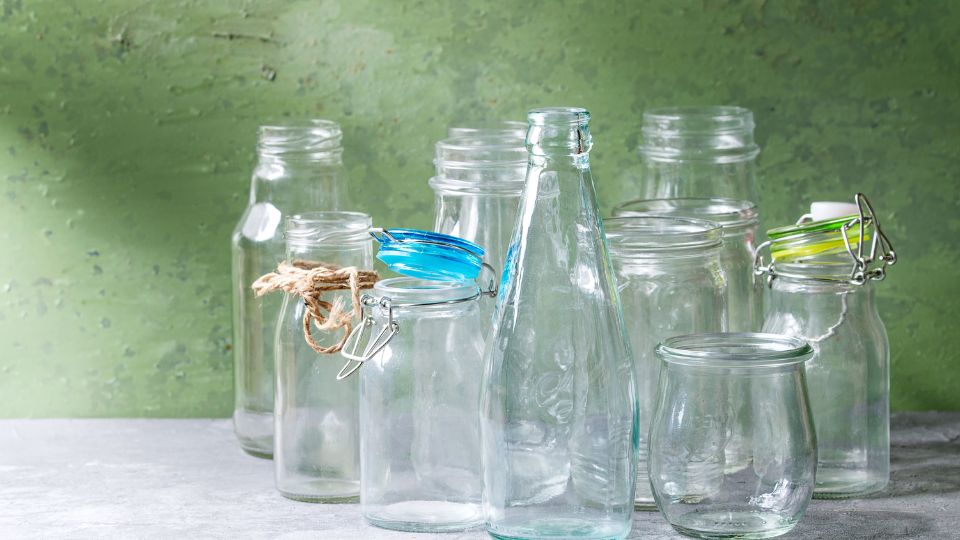
What is Upcycling?
Upcycling is the process of transforming waste materials into new products of higher quality or value. Unlike recycling, which often involves breaking down materials, upcycling repurposes items to give them a second life. In the context of glass, this means turning upcycled glass bottles and jars into decorative and functional items.
Why is Upcycling Important?
Upcycling is crucial for several reasons:
- Waste Reduction: It significantly reduces the amount of waste that ends up in landfills.
- Resource Conservation: It conserves natural resources by repurposing existing materials.
- Environmental Protection: It reduces the energy consumption and pollution associated with manufacturing new products.
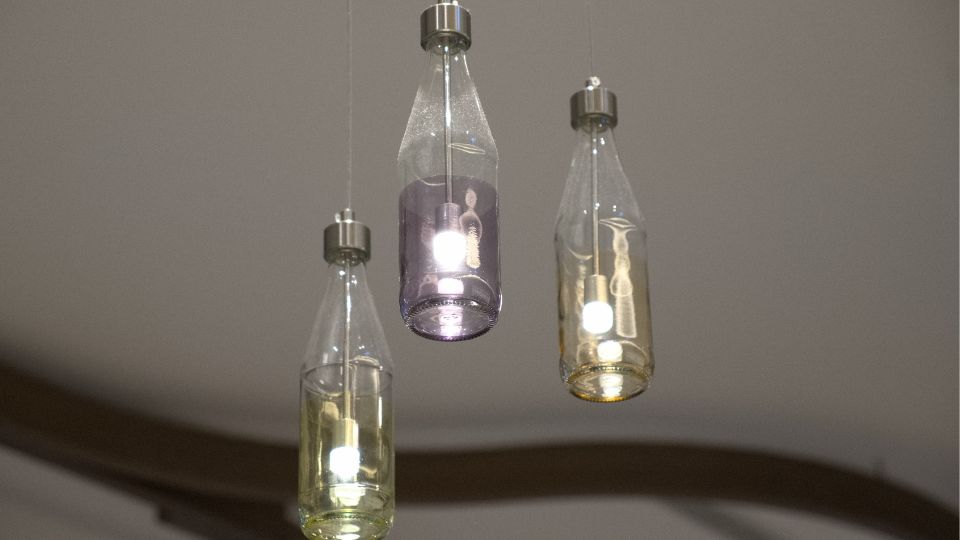
Creative Ideas for Upcycling Glass
There are numerous creative uses for old glass bottles and jars:
- Upcycled Glass Bottles as Lamps: Convert old bottles into stylish lamps by adding a light fixture.
- Upcycled Glass Jars as Planters: Use jars for planting herbs or succulents.
- Glass Mosaic Art: Use broken glass pieces to create beautiful mosaic artworks.
- Glass Bottle Vases: Paint or decorate old bottles to use as unique vases.
- Upcycled Glass Furniture: Repurpose larger glass items into tabletops or shelves.
We also found a fantastic blog with even more ideas – check out housefulofhandmade.com
DIY Projects
For those looking to start their upcycling journey, here are some DIY projects:
Glass Bottle Lamp
- Clean an old glass bottle.
- Insert a string of fairy lights or a bulb fixture.
- Decorate the bottle if desired.
Glass Jar Planter
- Clean a glass jar thoroughly.
- Fill it with soil and plant small herbs or succulents.
- Add decorative stones or paint the jar for a personalised touch.
Glass Mosaic Coasters
- Collect and clean broken glass pieces.
- Arrange them on a cork or wooden coaster base.
- Use adhesive to secure the pieces and grout to fill gaps.
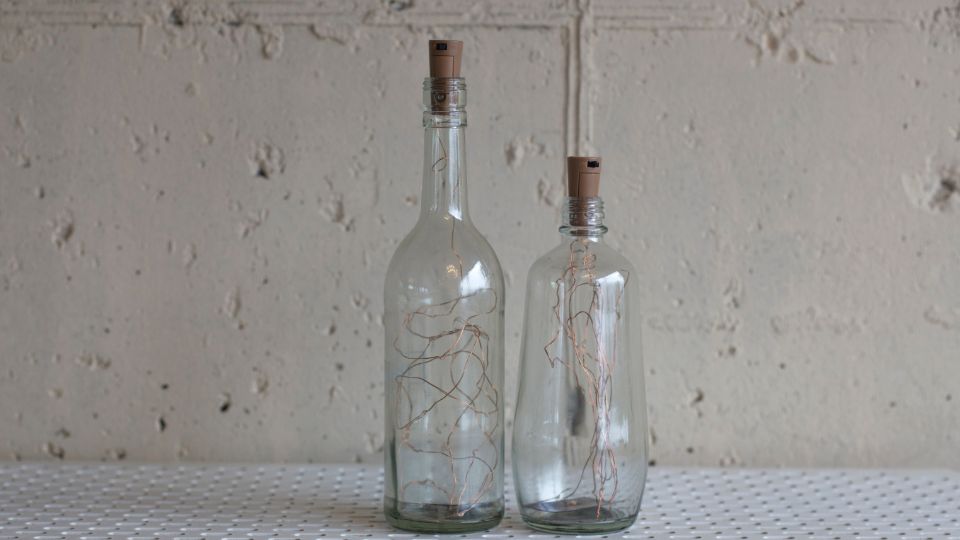
Benefits of Upcycling Glass
- Upcycling glass reduces waste and conserves recourses therefore it has a very positive impact on the environment.
- It saves money on raw materials and disposal fees; potential for revenue generation from selling upcycled products.
- It also has aesthetic and functional value as it creates unique, stylish, and functional items.
Challenges of Upcycling Glass
- There are safety concerns when working with glass as it can be dangerous, therefore safety equipment is required.
- Upcycling glass may also require tools and skills for more difficult projects as glass may need cut and shaped.
- There also may be an initial cost for certain tools and materials.
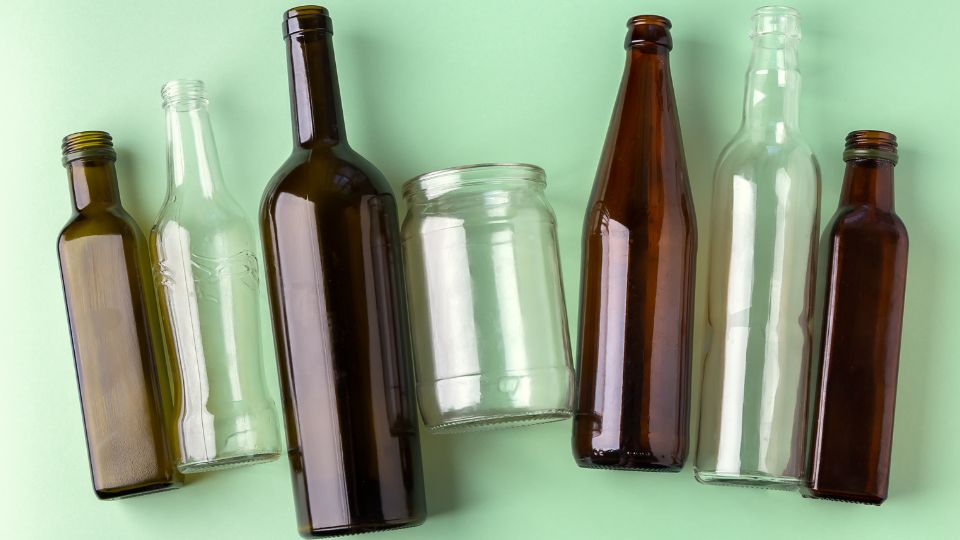
Environmental Impact of Upcycling Glass
Upcycling glass has a significant positive environmental impact:
It reduces landfill waste meaning less glass ends up in landfills which results in reducing long-term environmental damage. As well as this, Upcycling glass lowers carbon footprint as upcycling uses less energy compared to producing new glass products. This also has a large impact on pollution as it decreases the pollutants released during the manufacturing process of new glass.
Economic Aspects of Upcycling Glass
Upcycling glass also offers economic advantages:
Upcycling glass reduces costs as both individuals and businesses can save on disposal and raw material costs. Along with this, there is a growing market for eco-friendly, upcycled products, providing opportunities for artisans and businesses across the country.
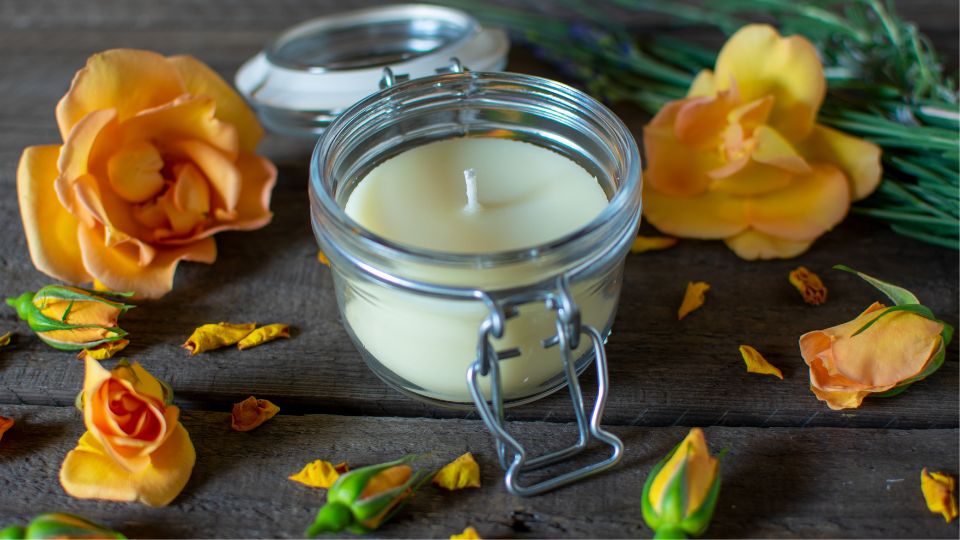
The Future of Upcycling Glass
The future of upcycling glass looks promising. With increasing awareness of environmental issues, more individuals and businesses are likely to adopt upcycling practices. Innovations in design and technology will also expand the possibilities for creating products made from upcycled glass. Furthermore, supportive policies and initiatives can enhance the growth of upcycling industries.
Conclusion
Upcycling glass is a powerful way to contribute to a sustainable future. By repurposing upcycled glass bottles and jars, we can reduce waste, conserve resources, and create unique products.
Whether you’re an individual looking to reduce your environmental footprint or a business seeking innovative waste management solutions, upcycling offers numerous benefits. Start exploring the uses for old glass bottles and embark on your upcycling journey today. Together, we can make a positive impact on our planet.



